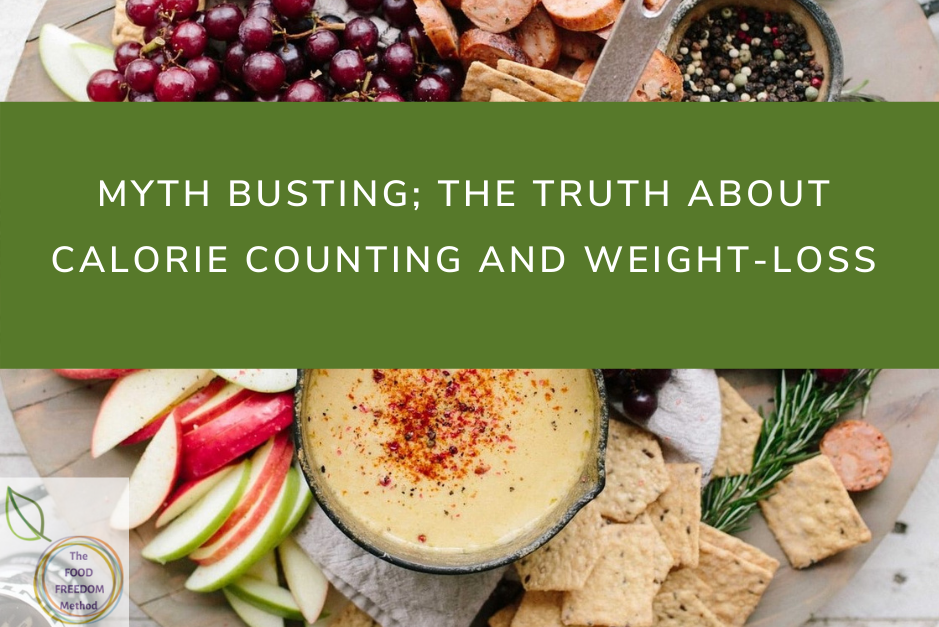For many people who come to me for help, calories weigh heavily on their mind. They are relentlessly worrying over what they should or shouldn't eat, often influenced by misguided beliefs about calorie counts and the inaccurate metrics found on food packaging labels.
For decades we have been conditioned to view ourselves as a calorie machine -lead to believe that achieving a calorie deficit, will grant us control over our body size, weight and shape. This notion is not only false but perpetuates the idea that we are to blame for not meeting society’s unrealistic body standards. It leads to feelings of guilt and shame, causing low self-worth and unnecessarily harm.
Contrary to the diet culture narrative that calories in equals calories out, our bodies are far more complex and dynamic, with numerous factors influencing weight control beyond simple calorie intake and expenditure.
The fact is we all require significantly different amounts of energy. For each individual, this will vary from day to day and from person to person will depend on their age, height, weight, gender, lifestyle and many other factors. Even two people of the same height and age may have vastly different calorie needs.
To understand this further let’s looks at how your body spends its calories:
The energy you need to stay alive uses approximately 60% of your daily calories and depends on the amount of muscle and fat you have, your age, gender and genetics. Your thirty-seven trillion cells are hard at work, allowing your heart to beat, your body to breath, producing hormones and growing and repairing cells, for example. This takes a huge amount of work and energy!
You burn around 10% of your daily calories to process your food (yes, that much to digest and absorb nutrients!) and this depends on the amount you eat, the type of food and your genes.
Your daily activity uses in the region of 15-30% of your daily calories. This will depend on the type, duration and intensity of activity and your body weight. There are many advantages to exercising but going to the gym to compensate for eating a ‘forbidden’ food is not a helpful strategy. It is always better to eat a balanced diet without depriving yourself of essential nutrients and exercise moderately.
And although your liver and brain make up only a small part of your body weight; they each account for one fifth of the calories you need to stay alive.
Notably, calories from different foods have different effects on your body – impacting your satiety levels, insulin response, fat storage and overall energy expenditure. Hence fixating on counting calories proves futile, as it overlooks these many significant factors.
The solution lies in cultivating a healthy relationship with food, adding variety in to your diet and allowing eating to become a positive and nourishing experience.
I support women who are exhausted by the relentless cycle of calorie counting, food anxiety, and weight fluctuations, and who are eager to foster a positive relationship with food and their body. If you're ready to bid farewell to yo-yo dieting, binge eating, disordered or emotional eating once and for all, and embark on a journey of lasting transformation, I warmly invite you to book in a complimentary consultation with me HERE. Together, we can explore if a personalised one-on-one programme is the right fit for you and how I can help.
If the idea of tackling your eating patterns feels overwhelming and you're unsure of where to begin, take a look at my FREE guide Breaking the Cycle - Your First Steps to Healing Your Relationship with Food to kickstart your journey today
This invaluable resource will help you:
✔️Know when you’re really hungry and when you’re not
✔️Learn when to eat that’s best for you
✔️Know the best snacks to help you stop craving and feeling out of control



